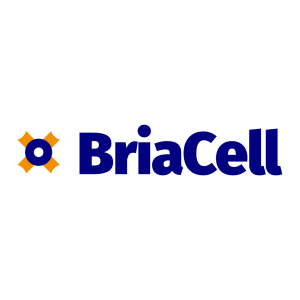BriaCell Reports Positive Overall Survival (OS) in Metastatic Breast Cancer
Rhea-AI Summary
BriaCell Therapeutics Corp. (Nasdaq: BCTX, TSX: BCT) has reported positive overall survival data from its Phase 2 clinical study of Bria-IMT™ in combination with an immune checkpoint inhibitor for late-stage metastatic breast cancer. The study showed a median overall survival of 15.6 months in patients treated since 2022, compared to 6.7-9.3 months reported in literature for similar patients. This represents a significant improvement over the previously reported 13.4 months median overall survival in December 2023.
The Phase 2 study enrolled 54 heavily pre-treated metastatic breast cancer patients, with an average of 6 prior treatments. The Bria-IMT™ regimen showed no drug-related discontinuations to date. BriaCell is currently conducting a Phase 3 pivotal study using the same Bria-IMT™ formulation in metastatic breast cancer patients.
Positive
- Median overall survival increased to 15.6 months, nearly double the 6.7-9.3 months reported in literature for similar patients
- Improvement from previously reported 13.4 months median overall survival in December 2023
- No drug-related discontinuations reported to date
- Ongoing Phase 3 pivotal study using the same Bria-IMT™ formulation
Negative
- None.
News Market Reaction
On the day this news was published, BCTX gained 3.31%, reflecting a moderate positive market reaction.
Data tracked by StockTitan Argus on the day of publication.
- Median overall survival of 15.6 months in Phase 2 Bria-IMT™ study patients treated in combination with immune checkpoint inhibitor
- OS of 15.6 months compares favorably with 6.7-9.3 months reported for similar patients in the literature
- Ongoing Phase 3 study investigating Bria-IMT™ in similar metastatic breast cancer population
- No drug related discontinuations to date
PHILADELPHIA and VANCOUVER, British Columbia, Sept. 11, 2024 (GLOBE NEWSWIRE) -- BriaCell Therapeutics Corp. (Nasdaq: BCTX, BCTXW) (TSX: BCT) (“BriaCell” or the “Company”), a clinical-stage biotechnology company that develops novel immunotherapies to transform cancer care, is pleased to announce positive overall survival data of its Phase 2 clinical study of Bria-IMT™ in combination with an immune check point inhibitor (CPI) in late stage metastatic breast cancer.
Median overall survival of 15.6 months is reported in BriaCell’s most recent patients (treated since 2022) vs. 6.7-9.3 months for similar patients reported in the literature (see table below). These patients are being treated with the same Bria-IMT™ formulation currently being used in BriaCell’s ongoing Phase 3 pivotal study in metastatic breast cancer (listed on ClinicalTrials.gov as NCT06072612) and represent patients enrolled post-COVID when full study activities resumed.
This represents a substantial improvement over BriaCell’s 13.4 months median overall survival previously reported in December 2023.
“Overall survival in patients with heavily pre-treated metastatic breast cancer is very poor,” stated Sara A. Hurvitz, MD, Professor of Medicine, Fred Hutch Cancer Center and University of Washington and BriaCell medical advisory board member. “The BriaCell early data is quite encouraging from both efficacy and tolerability standpoints.”
“We wanted to look at the Phase 2 data of those patients who most closely resemble the patients being treated in our ongoing phase 3 study and compare them to similar patients in the literature,” stated Dr. William V. Williams, BriaCell’s President and CEO. “The nearly two-fold overall survival benefit we are seeing with the Bria-IMT™ regimen, together with the similar previously reported approximate doubling of progression free survival, compared with literature controls, strongly support our belief that Bria-IMT™ could have a meaningful impact in the lives of heavily pre-treated metastatic breast cancer patients. We look forward to further clinical development of Bria-IMT™ with the goal of establishing it as a new standard of care for patients with metastatic breast cancer.”
“The Bria-IMT™ regimen is the only investigational drug we have seen to show these impressive survival numbers in heavily pre-treated metastatic breast cancer patients who have failed numerous prior treatments including immune check point inhibitors and antibody drug conjugates,” stated Giuseppe Del Priore, MD, MPH, BriaCell’s Chief Medical Officer. “These survival and clinical benefit data support BriaCell’s hypothesis of additive and/or synergistic effects of immune check point inhibitors with Bria-IMT™ and drive the ongoing pivotal study of our combination regimen in the treatment of metastatic breast cancer.”
The Phase 2 study enrolled 54 heavily pre-treated metastatic breast cancer patients (average number of prior treatments = 6) who were treated with the Bria-IMT™ regimen and an immune checkpoint inhibitor. Of these 54 patients, 37 were treated with the Phase 3 formulation and 25 of these were treated post-COVID when full study activities resumed. This data represents an additional six months of follow-up of the survival data presented at the San Antonio Breast Cancer Symposium in December 2023.
| Table 1. Comparative Median Overall Survival (OS) and Progression-Free Survival (PFS) in Similar Patients (Interim Analysis Using Kaplan-Meier Estimate) | |||||
| Study | Prior Lines of Therapy (median, range) | Number of Patients | OS (months) | PFS (months) | |
| BriaCell’s Phase 2 study patients who received pivotal Phase 3 study formulation (since 2022) | 5.5 (2-13) | 25 | 15.6 | 4.1 | |
| BriaCell’s Phase 2 study patients who received pivotal Phase 3 study formulation (total) | 6 (2-13) | 37 | 13.4 | 3.9 | |
| Bardia, A. et. al. 1 (TNBC) | 4 (2-14) | 262 | 6.9 | 1.7 | |
| Tripathy D. et. al. 2 (Brain metastases) | ≥4 in | 178 | 7.5-7.8 | 1.9-2.8 | |
| O’Shaughnessy J. et. al. 3 non-TNBC at initial diagnosis | 5 (2-14) | 76 | 6.7 | 2.3 | |
| O’Shaughnessy J. et. al. 3 TNBC at initial diagnosis | 4 (2-10) | 157 | 6.9 | 1.6 | |
| Cortes et. al. 4 | 4 (0-13) | 594 | 9.1-9.3 | 1.9-2.5 | |
References
- Bardia A, et al. Final Results From the Randomized Phase III ASCENT Clinical Trial in Metastatic Triple-Negative Breast Cancer and Association of Outcomes by Human Epidermal Growth Factor Receptor 2 and Trophoblast Cell Surface Antigen 2 Expression. J Clin Oncol. 2024 May 20;42(15):1738-1744. doi: 10.1200/JCO.23.01409. Epub 2024 Feb 29. PMID: 38422473.
- Tripathy D, et al. Treatment with etirinotecan pegol for patients with metastatic breast cancer and brain metastases: final results from the phase 3 ATTAIN randomized clinical trial. JAMA Oncol. 2022;8(7):1047-1052. doi:10.1001/jamaoncol.2022.0514.
- O’Shaughnessy J et al. Analysis of patients without and with an initial triple-negative breast cancer diagnosis in the phase 3 randomized ASCENT study of sacituzumab govitecan in metastatic triple-negative breast cancer. Breast Cancer Res Treat. 2022 Sep;195(2):127-139. doi: 10.1007/s10549-022-06602-7. Epub 2022 May 11. PMID: 35545724; PMCID: PMC9374646.
- Cortes J, Perez-Garcia J, Levy C, Gómez Pardo P, Bourgeois H, Spazzapan S, Martínez-Jañez N, Chao TC, Espié M, Nabholtz JM, Gonzàlez Farré X, Beliakouski V, Román García J, Holgado E, Campone M. Open-label randomised phase III trial of vinflunine versus an alkylating agent in patients with heavily pretreated metastatic breast cancer. Ann Oncol. 2018 Apr 1;29(4):881-887. doi: 10.1093/annonc/mdy051. PMID: 29481630.
About BriaCell Therapeutics Corp.
BriaCell is a clinical-stage biotechnology company that develops novel immunotherapies to transform cancer care. More information is available at https://briacell.com/.
Safe Harbor
This press release contains “forward-looking statements” that are subject to substantial risks and uncertainties. All statements, other than statements of historical fact, contained in this press release are forward-looking statements. Forward-looking statements contained in this press release may be identified by the use of words such as “anticipate,” “believe,” “contemplate,” “could,” “estimate,” “expect,” “intend,” “seek,” “may,” “might,” “plan,” “potential,” “predict,” “project,” “target,” “aim,” “should,” “will,” “would,” or the negative of these words or other similar expressions, although not all forward-looking statements contain these words. Forward-looking statements, including statements about: the impact of Bria-IMT™ on patients with metastatic breast cancer; BriaCell’s further clinical development of Bria-IMT™; and the efficacy of immune check point inhibitors, are based on BriaCell’s current expectations and are subject to inherent uncertainties, risks, and assumptions that are difficult to predict. Further, certain forward-looking statements are based on assumptions as to future events that may not prove to be accurate. These and other risks and uncertainties are described more fully under the heading “Risks and Uncertainties” in the Company’s most recent Management’s Discussion and Analysis, under the heading “Risk Factors” in the Company’s most recent Annual Information Form, and under “Risks and Uncertainties” in the Company’s other filings with the Canadian securities regulatory authorities and the U.S. Securities and Exchange Commission, all of which are available under the Company’s profiles on SEDAR+ at www.sedarplus.ca and on EDGAR at www.sec.gov. Forward-looking statements contained in this announcement are made as of this date, and BriaCell Therapeutics Corp. undertakes no duty to update such information except as required under applicable law.
Neither the Toronto Stock Exchange nor its Regulation Services Provider (as that term is defined in the policies of the Toronto Stock Exchange) accepts responsibility for the adequacy or accuracy of this release.
Contact Information
Company Contact:
William V. Williams, MD
President & CEO
1-888-485-6340
info@briacell.com
Media Relations:
Jules Abraham
CORE IR
julesa@coreir.com
Investor Relations Contact:
CORE IR
investors@briacell.com








